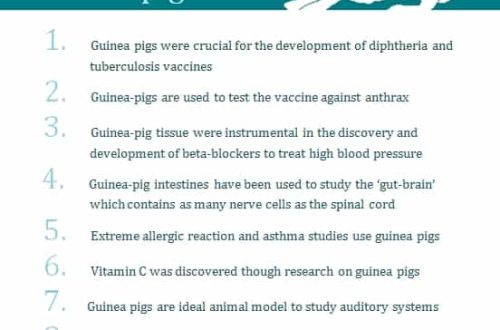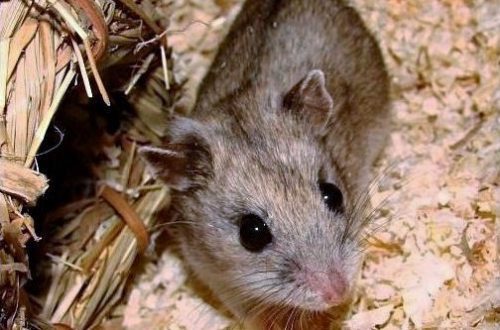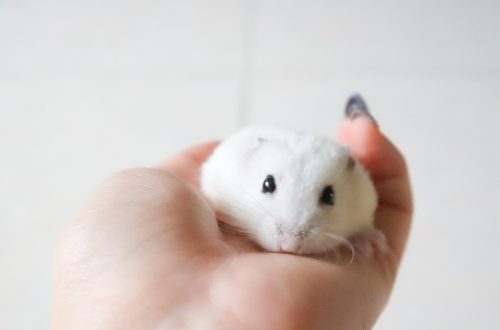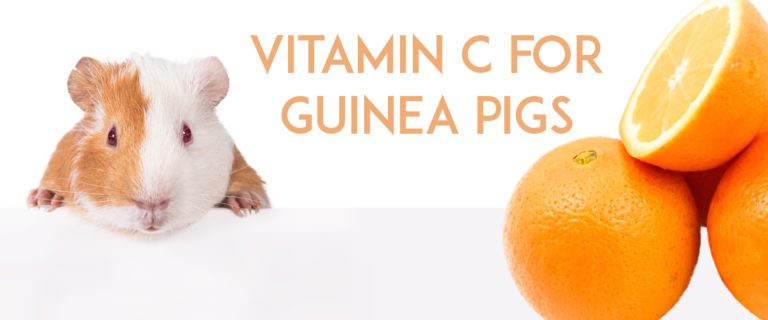
Vitamins for guinea pigs: what are needed and how to give
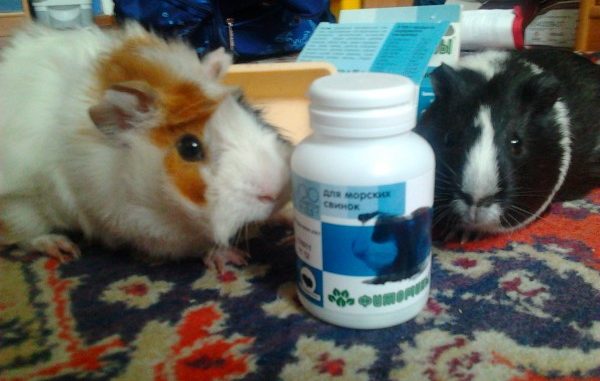
Guinea pigs are herbivorous, well-fed pets. They constantly chew fresh hay, green herbs, vegetables and fruits with great pleasure. In their natural habitat, wild relatives of cute rodents get all the necessary nutrients, vitamins and trace elements from the food they eat. When keeping fluffy animals at home, it is necessary to add vitamins for guinea pigs to the diet of animals. A lack of vitamins in the body leads to scurvy, convulsions, impaired coordination, and infertility. It is possible to stop growth, weaken the immune system and worsen the general health of a beloved friend.
Contents
Vitamin C for guinea pigs
Unlike wild rodents, domestic guinea pigs lack the enzyme I-gluconolactone oxidase, which is necessary for the synthesis of ascorbic acid from glucose. This physiological feature makes it impossible to independently produce vitamin C, so it is necessary to give ascorbic acid to a guinea pig all his life.
Lack of ascorbic acid in the body of an animal causes scurvy, which is manifested by the following characteristic symptoms:
- lethargy, inactivity, decreased appetite;
- lameness, cautious gait, difficult movements;
- swelling of the joints;
- disheveledness and hair loss;
- loosening and loss of teeth, bleeding gums;
- bleeding under the skin, blood in the urine, saliva, feces;
- diarrhea, general weakness.
In the absence of vitamin C intake in the body of a pet, the pathology ends with the death of a fluffy little animal.
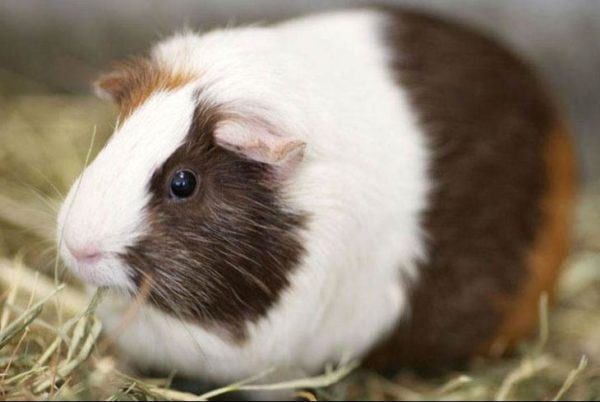
It is possible to provide your beloved animal with the necessary amount of vitamin C in the spring-summer period by increasing the content of fresh green grass, stems and leaves of permitted herbs, fresh vegetables and fruits in the diet. In winter, it is necessary to give guinea pigs synthetic ascorbic acid. Regardless of the season, pregnant and lactating females, growing young, sick and weakened animals need an increased dosage of vitamin C.
Foods Containing Vitamin C
Ascorbic acid for guinea pigs is given at a dosage of 10-30 mg / kg daily, pregnant, sick and debilitated pets need 35-50 mg / kg every day. Organic vitamin C is found in high amounts in the following foods:
- Bulgarian pepper;
- tomato;
- broccoli;
- spinach;
- kiwi;
- cabbage;
- parsley;
- mint;
- basil;
- an Apple;
- fennel;
- nettle;
- burdock;
- dandelion;
- branches of coniferous trees, raspberries and black currants with leaves.
The listed products are available to the owners of guinea pigs in the summer, therefore, with sufficient introduction of juicy fresh grass, vegetables and fruits into the diet of small animals, additional introduction of synthetic vitamin C is not required.
Special attention must be paid to the collection of herbs, lawns and parks are treated with chemicals that, if ingested by a guinea pig, can cause bloating, diarrhea, intoxication and death.
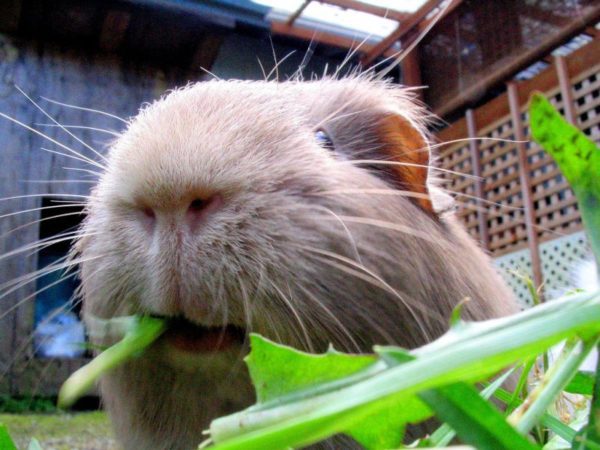
Synthetic vitamin C is added by responsible manufacturers to dry kibble, but after three months from the date of production, ascorbic acid is destroyed. Ready-made feeds are recommended to be bought fresh and stored for no more than a month in a dark, dry room, high humidity and air temperature contribute to the accelerated destruction of a useful vitamin.
How to give vitamin C to a guinea pig
Synthetic vitamin C is given to domestic rodents in liquid form or in tablets during the autumn-winter period. Tablet forms are sold in veterinary shops or a regular human pharmacy. When buying ascorbic acid, you must carefully study the composition: the drug must contain pure vitamin C without impurities. It is not recommended to use multivitamins to provide the animal with vitamin C. Hypervitaminosis is possible with the development of undesirable complications.
Vitamin C for humans is available in a dosage of 100 mg, so a quarter of a tablet daily is enough for a beloved pet. The drug can be crushed and mixed with food. Some individuals are happy to gnaw on a vitamin, perceiving it as a treat. Dissolving vitamin C in water is not recommended: a small rodent may refuse to drink acidic water. The consequence can be not only scurvy, but also dehydration.
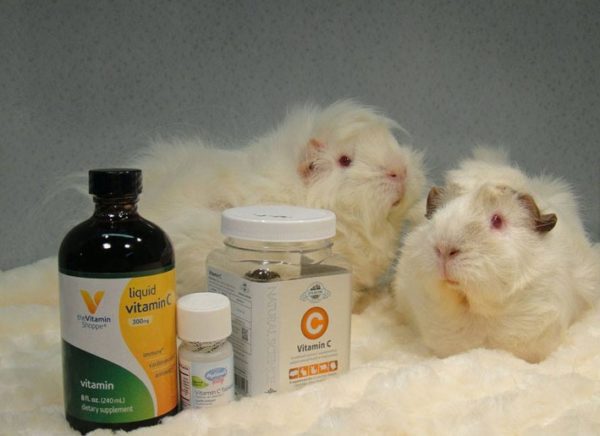
A liquid preparation is sold in a pharmacy in the form of a 5% solution of ascorbic acid. The drug must be drunk daily to a small animal at a dosage of 0,5 ml from an insulin syringe without a needle. Adding a liquid solution of vitamin C to the drinker is also not recommended: it is impossible to control the dosage. In addition, the solution oxidizes the metal parts of the drinker, and a small rodent may refuse to drink acidified water.
Should I give my guinea pig a multivitamin?
With a balanced diet, sufficient feeding with herbs, vegetables and fruits, excellent appetite, good mood and physical activity, it is not recommended to give additional vitamin complexes to the guinea pig.
An excess of synthetic vitamins in the body of a pet with insufficient nutrition is a stimulating factor for the formation of tumors. The use of vitamin supplements in guinea pigs is advisable for diseases, exhaustion, weakened immunity. The dosage, course and type of a particular drug should be prescribed by a veterinarian.
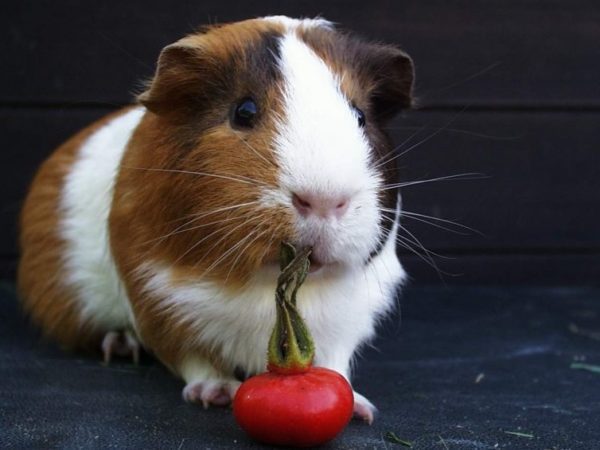
A guinea pig needs very little to maintain and maintain its health: plenty of juicy grass, vegetables and fruits to provide vital amounts of vitamin C, granular feed, hay, clean water and the love of its owner.
What Vitamins Should Guinea Pigs Get?
3.7 (73.33%) 9 votes



